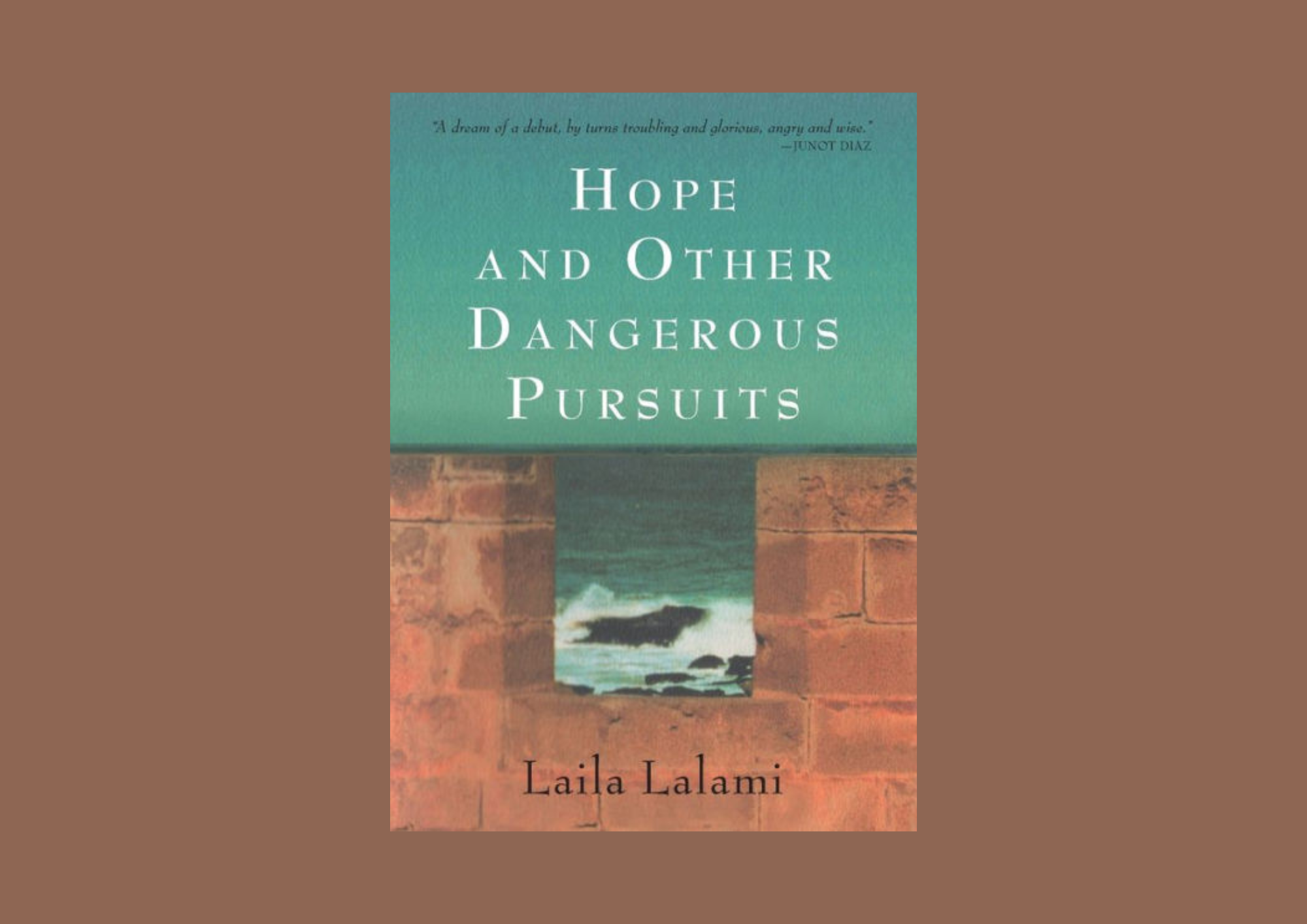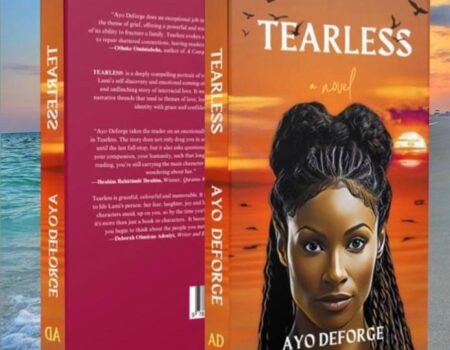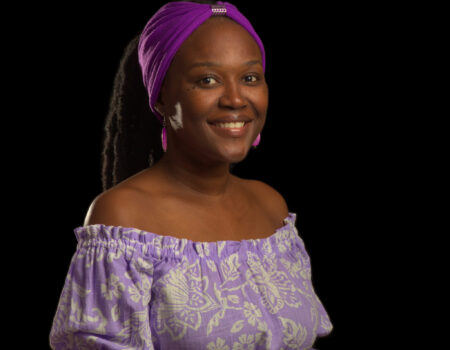A Reading of Laila Lalami’s Hopes and Other Dangerous Pursuits
Partly what postcoloniality as a discourse addresses is the subject’s constantly changing self on the postcolony and the factors that undergird these changes. Such factors include the country’s economics, whether buoyant or recessional; the cultural structure, whether heterogeneous or homogeneous, inclusive or alienating; national politics and how it conditions social interaction; religion, and the role it plays in either estranging or integrating members of the society; gender-role relations, and the systemic patriarchy that enforces it.
In this light, Laila Lalami’s Hopes and Other Dangerous Pursuit, as a postcolonial text set in Morocco, addresses all these issues, and how they produce a nervous condition that people and countries, grappling with postcolonial tensions, must continually interrogate. Not only does Lalami’s book chronicle the harsh realities that inform migration, it also examines the raison d’être of migration; that is, the hope-factor. Thus, although all the major characters seek hope in immigration, all of them find it in self-actualisation.
The book is divided in three parts: The Trip, which is the centre of action, the crux of the book; Before, which is an illumining backstory; and After, which continues each character’s story after The Trip.
The Trip shows the four major characters—Murad, Aziz, Faten, and Halimat (and her three children)—on an 8-seater inflatable boat together with 26 other people attempting to cross through the Straits of Gibraltar to the Spanish coastline. Come from different socioeconomic conditions, poor in variation, and from a different race (a Guinean woman), Morocco and Spain represent not just “two countries” to them but also “two universes”.
Murad is anxious but hopeful, passive but contemplative, comparing their crossing with the 711 Moorish Invasion of the Visigoths. Aziz, crossing for the second time, is unperturbed, assured even. Faten, oddly wearing a Hijab, is reluctant, tepid, and soon becomes hysteric an hour before the boat topples. Halimat is desperate, huddling her three children.
The air soon becomes tense when the Captain, Rahal, refuses to drive to shore and, during a ruckus, the boat topples and everybody has to grapple with surviving to the shore, where the Guardia Civil (the police) are already waiting for them.
The major characters’ lives here are unexplored. Only their emotional states are portrayed, and even little is shown of Murad’s life, from whose perspective the book’s overture is told.
Before, as a backstory, contextualises the foregoing part. It comprises four chapters, each which focuses on the anxieties of each character’s life before the trip, equally underlining their motivation for it.
Before: “The Fanatic” delves into the life of Larbi, a corrupt civil servant at the Moroccan Ministry of Education, and the awakening of his daughter’s (Noura’s) religio-political consciousness.
Larbi is a typical middle-class man, apolitical, irreligious, controlling, measuring his quality of life by how seamlessly his children can integrate into European society. Noura, on the other hand, with her life cut out for her—French schools, European Literature, NYU— struggles for agency from her father, who represents Moroccan systemic patriarchy and class boundaries, when her friend, Faten (her classmate from University of Rabat) enlightens her on the prejudices under Morocco’s constitutional monarchy; thus, awakening Noura’s nationalist sensibilities.
Here, Faten’s life is marginally depicted, to contrast with Noura’s.
Faten is a socioeconomically disadvantaged woman, de-establishmentarian and progressive in ideology, and a religious conservative, while Noura is not. And, their commingling is the catalyst for Noura’s socio-religio-political awakening. However, suspect of the changes in Noura through Faten’s influence, Larbi vows to expel Faten from the University, through his influence. An action that would send Faten to the lowest rung of the economic class. Through this contrast, the text highlights some of the motivations that translate to the hope of seeking home elsewhere.
After: the focus shifts to Faten Khatibi, working as a prostitute in Spain, dejected by her bleak past. “She didn’t want to think of that time in her life, when the world still seemed full of promise and possibility.” (P. 76)
She reminisces her poor background, Larbi’s influence in her expulsion from the university, the unsustainability of her religious faith in the face of state-sponsored persecution and poor economic conditions, and her journey towards becoming the odalisque she’s feared to become. A woman lost in the monotony of migrant life, pursuing the apparition of ideal living in Spain, through the help of Martin, “a gift”, her assumed “hope”, one of her sex customers, Faten makes the psychological jump necessary for self-actualisation, determined to distinguish herself in foreign Spain.
Before: “Bus Rides” follows the story of Halima, mother of three, fleeing domestic violence to divorce her husband, Maati. Through a sequence of bus rides to her mother (Fatiha), to a judge, and to her janitorial job, Halima has to define her self away from the clutches of Maati’s virile masculinity. At her mother’s, Fatiha further ostracises Halima’s agency by questioning her “talking back” when Halima complains of Maati’s inconsistencies. “See? This is why he beats you. You talk back.” (P. 34)
As an alternative to a divorce, Fatiha recommends sorcery so that Maati can love Halimat. But even that alternative is unsustainable for Halima’s defiance and Maati’s fragile ego. And they soon come to blows after a brief demonstration of affection.
In addition, “Bus Rides” foregrounds how economics re-engineer gender-role relations in Morocco, bringing to light how both genders continue the ransoming and objectification of femininity, as it is evident in the characters of Fatiha, Maati, and the swindling judge. Halimat’s decision to migrate, happenstance though it be, is thus her attempt to escape a culture and a country that ostracises her.
After: while Halima was drowning after Captain Rahal’s boat topples, her son Farid miraculously saved her. On their deportation to Casablanca, Farid also miraculously works out Halima’s divorce— Maati files the paperwork himself. Halima doubts the supernatural, recalling a childhood series with a bleeding tree whose pus Fatiha believed healed her arthritis until the tree was cut down. Farid also miraculously helps a neighbour’s son to pass a previously-failed exam. The news of Farid’s supernatural power, of being a mardi a blessed child, spreads around. And Halima’s misery is lessened, with the hope that Farid, the saint, constitutes the promise of fulfilled living.
Before: Unlike Maati and Halimat, Aziz and Zohra, in “Acceptance”, agree that Aziz should immigrate to Spain, to improve their economic conditions.
After: however, in “Homecoming”, Aziz returns to Casablanca, distinguished, estranged by the cultural differences of Spain and Morocco. This estrangement further redefines his relationship to Zohra, culminating in the epiphany that they must now go separate ways and lead different lives, out of their inability to meet at a centre. The text here highlights how life abroad can consciously re-define personal relationships in Morocco, often resulting in a significant cultural divide and alienation.
Before: “Better Luck Tomorrow” presents Murad Idrissi, a tourist guide with a Bachelor’s in English, frustrated by constant low patronisation, typical of the lower class in post-independence Morocco. Although an adult, he lives with his mother, sister (Lamya) and brother (Khalid), and his inability to commit financially to the family transgresses against his masculinity, which is defined along economic lines. Thus, he becomes invisible, and in the streets in disgrace he avoids acquaintances and former work places.
“Just because I don’t have a job you think I’m invisible? I’m her older brother. You should have come to me.” (P. 62)
In a Morocco where worth is defined on the basis of wealth and not on character, Murad has to take his chances abroad, hopeful about the life Spain promises and of distinguishing himself materially.
After: But caught by the Spanish coastguards and deported, Murad’s hopes for a fulfilled life in Spain is quashed. He works at Botbol Bazaar and Gifts, obscured from financial prospects, without the hope of ever immigrating again. But there, he realises a talent he has often ignored, one which contents him, fills him with purpose. And although there’s presently no hope of ever making money from it, when two tourists come in, he decides to tell them a story, all the while promising to embrace his creative impulses towards storytelling.
Significant in how the text approaches the theme of hope is how it also depicts characters that find the faith for living, not just in immigration to other economically advanced countries, but in the character’s own self-actualisation. This is an attribute that distinguishes Lalami’s book; because it presents Moroccan life beautifully in all its 21st-century post-colonial tensions.
Isaiah Gbenga Adepoju
Isaiah Adepoju is a retired Nigerian. He's a fellow of two national writing residencies and the UNDERTOW Poetry Fellowship. His works have been shortlisted for the Alpine Fellowship Poetry Prize, and won the Lagos-London Poetry Prize. He's currently the Editor-in-Chief of ANA-OAU, and the Deputy Editor-in-Chief of The Nigeria Review.




![[Featured Post] Celebrating African Literary Festivals: A Compendium of Post-2020 Debuts](https://jaylit.com/wp-content/uploads/2025/02/Celebrating-African-Literary-Festivals-JayLit-450x350.jpeg)
